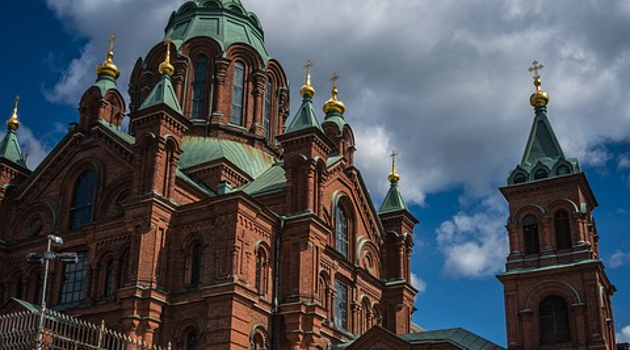Assuming he was able to impose his policy agenda, I think Bernie Sanders – at best – would turn America into Greece. In more pessimistic moments,  I fear he would turn the U.S. into Venezuela.
I fear he would turn the U.S. into Venezuela.
The Vermont Senator and his supporters say that’s wrong and that the real goal is to make America into a Nordic-style welfare state.
Since those nations mitigate the damage of their large public sectors with very pro-market policies on regulation, trade, and property rights, that wouldn’t be the worst outcome.
Though “Crazy Bernie” is still wrong to view Denmark and Sweden as role models. Why adopt the policies of nations that have less income, lower living standards, and slower growth?
Is Finland a better alternative?
The answer is yes, according to Ishaan Tharoor’s WorldView column in the Washington Post.
Sanders and some of his Democratic competitors are clear about what they want to change in the United States. They call for the building of a robust social democratic state, including programs such as universal healthcare, funded in large part by new taxation on the ultrarich and Wall Street.
…Sanders is particularly fond of the “Nordic model” — the social plans that exist in countries such as Denmark, Sweden, Norway and Finland, which deploy higher taxation to provide quality public services and keep inequality at rates lower than the United States. …Across the Atlantic, at least one leading proponent of the Nordic model welcomed its embrace by U.S. politicians. “We feel that the Nordic Model is a success story,” said Finnish Prime Minister Sanna Marin… “I feel that the American Dream can be achieved best in the Nordic countries, where every child no matter their background or the background of their families can become anything, because we have a very good education system,” she said.
I prefer the analysis of a previous Prime Minister, though it’s hard to fault Ms. Marin for extolling the virtues of her nation.
But is Bernie Sanders really talking about turning America into Finland?
Tharoor correctly notes that the Nordic nation tells a very mixed story.
Sanders’s ascent in the past five years has spurred considerable debate over what lessons should be learned from the Nordic countries he celebrates. A cast of centrist and conservative critics note, first, that these Nordic countries are more capitalist than Sanders concedes, with generous pro-business policies and their own crop of billionaires; and, second, that the welfare states in Nordic countries are largely financed by extensive taxes on middle-class wages and consumption.
The last excerpt is key.
The big welfare states in Europe – and specifically in Nordic nations such as Finland – are financed with big burdens on lower-income and middle-class taxpayers.
According to data from the Tax Foundation and OECD, middle-income Finnish taxpayers are forced to surrender about 15 percent more of their income to government.
Why such a big difference?
Because Finland has an onerous value-added tax, punitive payroll taxes, and their income tax imposes high rates on people with modest incomes.
In other words, it’s not the rich who are financing the welfare state. Yet Bernie Sanders never mentions that point.
I’ll close by simply noting that Finland (like other Nordic nations) is not a statist hellhole. As I wrote just two months ago, the nation has some very attractive policies.
Indeed, the country is almost as market-oriented as the United States according to Economic Freedom of the World (and actually ranked above America as recently as 2011).
Bernie Sanders, though, wants to copy the bad features of Finland.
He wants America to have a big welfare state, but doesn’t want Finland’s very strong rule of law or robust property rights for people in the private sector. Nor does he want Finland’s 20 percent corporate tax rate.
And I suspect he doesn’t realize that Finland just learned an important lesson about the downsides of giving people money for nothing.
Most important of all, I’m very confident he doesn’t understand why Americans of Finnish descent generate 47 percent more national income than Finns who stayed home.
P.S.S. Researchers at Finland’s central bank seem to agree with my concern about excessive government spending.
———
Image credit: alessandrodanchini | Pixabay License.


